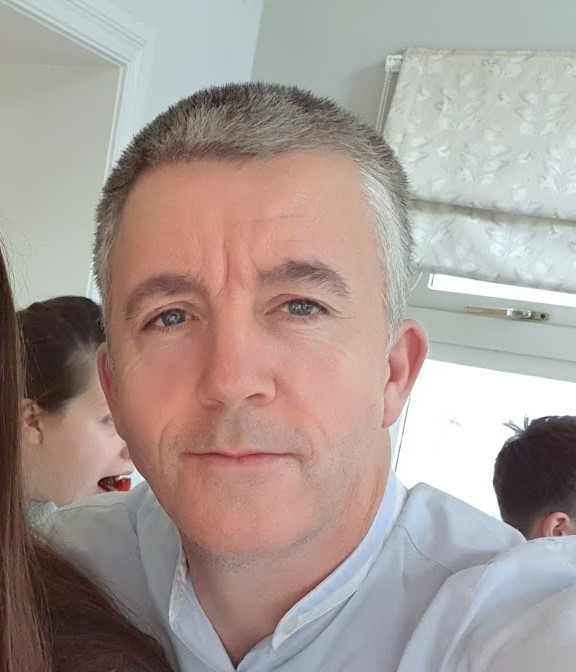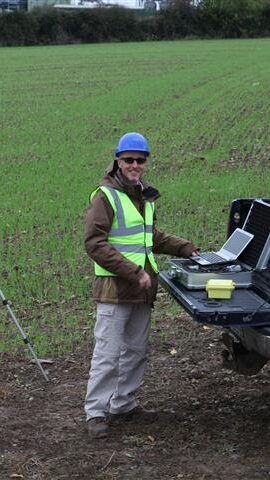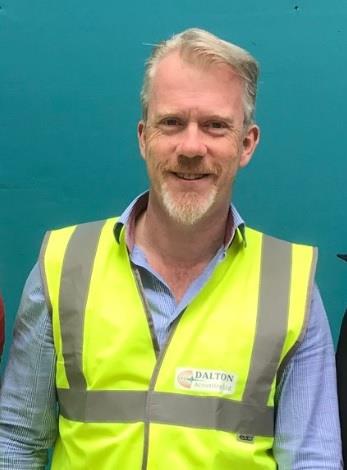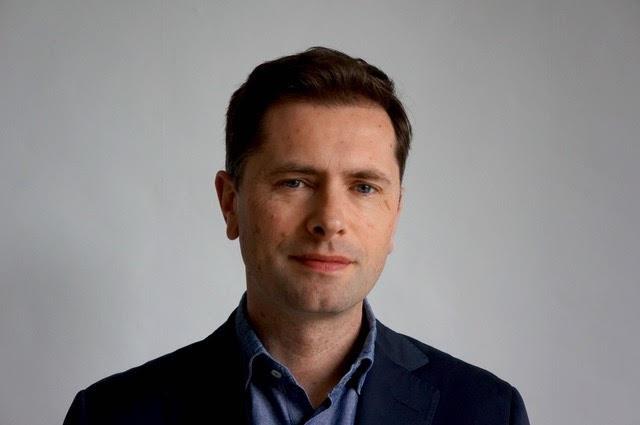The Association of Acoustic Consultants of Ireland
By Damian Brosnan
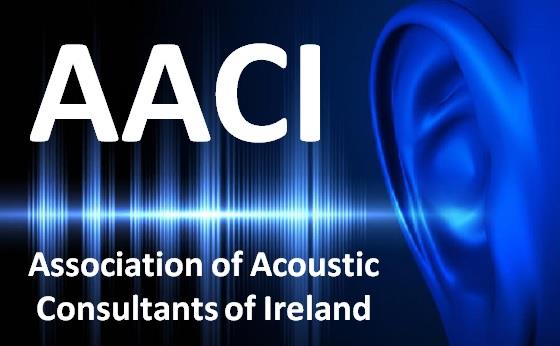
I’m an acoustic consultant in the Republic of Ireland (ROI). I’ve been a sole trader since 2015. Prior to that, I was a partner in a multidisciplinary environmental consultancy for 15 years. I was the sole noise guy in the consultancy. Although being a sole trader and being a sole noise expert in a larger team are very different, they share one common feature: Where does a sole noise operator go to for support? In a team with several experienced acoustic consultants, junior members can approach others for advice. A casual discussion around the coffee machine can resolve any noise issue. The knowledge that an experienced practitioner picks up over the years is not taught in university, or at seminars, or in online continuing professional development (CPD) sessions.
The poor acoustic consultant who operates solo does not have access to such an incredible resource as the wily old expert who has encountered every possible noise issue under the sun. For instance, a difficult project lands on your desk that can be approached in a number of ways. Which way is best? How do you know that your interpretation of a standard is the right one? What averaging window should you use? And who was Maekawa anyway?
There are other drawbacks too. It is difficult to keep tabs on the standards that are being revised and updated all the time. It can be even more difficult to contribute to the development of standards. You might be an expert on the relationship between vehicle speed, asphalt type, and noise level, but what standard review committee is going to listen to you? Why should that department official or environmental regulatory body pay any heed to your little opinion?
Enter the Association of Acoustic Consultants of Ireland (AACI). The question that sticks in my mind is, Why didn’t we think of it sooner? You see, I was not alone. There were other acoustic consultants across the country, beavering away on noise impact assessments, calibrating sound level meters in a field at night, and checking their notes before presenting evidence in the case of Mr. & Mrs. Longsuffering -v- Noisy Factory Ltd. Sure, I’d heard of these consultants. I had met many of them over the years at various conferences and talks. I’d reviewed reports written by some of them and looked at them across the courtroom. I’d even collaborated with some of them on large projects. But I didn’t realize that they were experiencing the same issues as I did. It turns out that we all suffer from impostor syndrome.
The AACI was formed in 2019 out of discussions among a few acquainted acoustic consultants who ultimately became founding members. The genesis of the association would most likely have been slower if not prompted by two factors. Coincidentally, both factors originated outside of the ROI.
The AACI project was particularly driven by current chairman Diarmuid Keaney. Diarmuid and the similarly experienced Ted Dalton had both encountered difficulties in winning various acoustic testing contracts in completed residential developments. They were being regularly denied the opportunity to quote by potential clients because of the clients’ misinterpretation of a policy statement issued in Northern Ireland (NI)—not even the same jurisdiction. Diarmuid and Ted had been trying to get the issue resolved with the relevant government department in the ROI. They had also raised the issue with the Irish branch of the Institute of Acoustics (IOA), which had an indirect involvement in the original NI policy statement. Their frustration with progress convinced them that there was a need for a trade body for acoustic professionals working in the ROI.
The second factor was Brexit, which we all thought was the worst thing that would affect our lives this century. Those were simpler times! Being members of the IOA, we were entirely unsure how Brexit would affect us. The only thing we were sure about was that we should not be sure about anything. We did not know how the departure of the United Kingdom from the European Union would affect the IOA’s role in the ROI, or our daily use of the wide range of excellent British Standards in circulation. We still don’t, in fact. We needed a voice to represent us among all this upheaval.
And so the AACI was quickly born. Since 2019, several more acoustic consultants have been invited to join. Membership now stands at 10, which is not bad for a country of only 5 million. It will continue to grow as more consultants ask or are invited to join. The 10 current members probably have a combined total of 200 years’ experience, across environmental noise, occupational noise, and building acoustics. Each member excels in a certain area, such as traffic noise, building insulation, impact assessment, wind farm noise, and so on. It’s like the world’s greatest acoustic team!
The wide range of expertise is not just confined to acoustics. Some are great at social media. Some are great at presenting. Some are really good at writing articles such as this; unfortunately they were busy, so I stepped in. I’ve noticed that one member is astoundingly good at picking out minute but critically relevant details in guidance documents, the kind of details that I miss, even after I’ve been told where they are. These skills are essential when promoting a new professional entity. With only a small number of members at present, everyone pitches in to help grow the association. As the AACI grows, it is hoped that new members will contribute and bring their own unique skills to bear.
It is intended that our association will fulfill a role similar to that provided by the Association of Noise Consultants (ANC) in the United Kingdom. The ANC describes itself as a representative body for acoustic consultancies. We see our role as similar, meeting a need in the ROI that the IOA cannot. We see the AACI as a professional association for qualified acoustic, noise, and vibration consultants, as well as other professionals working in the field of acoustics in the ROI.
One major difference between the ANC and the AACI is that we decided, after some discussion, to award membership to individuals rather than companies. This allows tighter control on membership. The chief AACI membership criterion is full membership of the IOA. All current AACI members are also IOA members and have completed the IOA postgraduate diploma in acoustics and noise control. Several AACI members also sit on the IOA Irish branch committee and actively participate in the advancement of acoustics in the ROI.
In the short time that the AACI has been in existence, some major goals have been achieved. At the start of 2021, we registered with the European Acoustics Association (EAA) and have now formally become the EEA membership society for the ROI. We have reached out to several acoustic researchers spread across ROI colleges and universities, with a view to potential collaborative work in the future. A code of ethics has also been prepared.
One of our biggest achievements has been the preparation of the ROI’s first substantial noise guidance document issued outside of a government or the EPA. The document, aimed at local authorities, provides guidance on drafting noise conditions for inclusion in planning permission and identifies key issues to look out for when reviewing impact assessment reports. It also summarizes all the noise guidance documents currently available. The document has been well received in the absence of any governmental guidance, and several local authorities make reference to the document in their noise action plans.
It is the AACI’s intention to prepare further guidance documents in the future. First up will be a document relating to sound testing measurements, one of the objectives of which will be the setting out of clear guidance on competence with a view to finally resolving the issues identified by Diarmuid and Ted previously. The AACI has been in discussion with the relevant government department regarding the issue in the meantime.
Another area where the AACI has excelled has been the provision of short training courses and seminars, which go toward CPD. Members cannot get enough of these. Through the collective power of networking and purchasing, approximately 10 such seminars have been held to date, mostly online. This will continue to be a big part of the AACI’s raison d’être in the future.
One AACI feature that was completely underestimated at the outset is a WhatsApp group for members, where advice can be sought on any acoustic issue. This has been a godsend on complex projects. Why spend hours trying to determine the relevance of some parameter in a formula that begins with Σ and ends with four closing brackets when a quick question on the WhatsApp group will shine a light? Members are only too happy to help. This is fundamentally what the AACI is about: improving the standard of acoustic assessment and surveys in the ROI through collaboration. As I mentioned earlier, why the hell didn’t we think of this sooner?
The founding members of the AACI are Diarmuid Keaney, Chairperson; Ted Dalton, Group Secretary, Finance and Membership; Damian Brosnan, Guidance Document Coordinator; and James Walsh, Ethics Committee Member.
